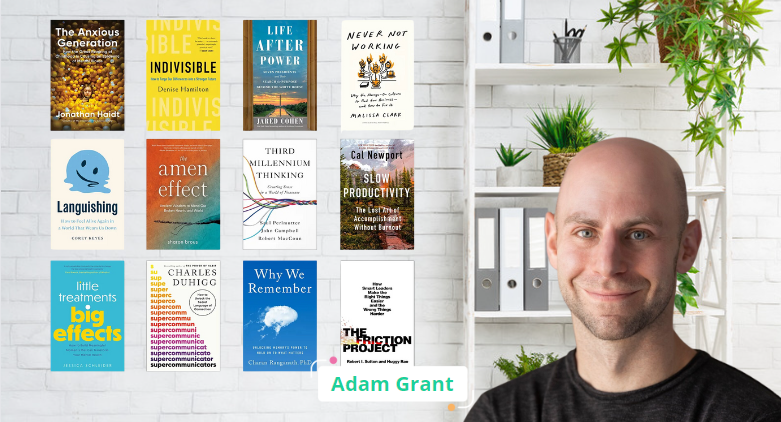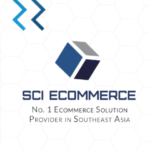Recognized as Wharton's top-rated professor, and one of the world's 10 most influential management thinkers and Fortune's 40 under 40.
#1 New York Times bestselling author of Think Again and 4 other books that have sold millions of copies. TED talks have been viewed over 30 million times. Host of WorkLife with Adam Grant, a TED original podcast.
Guest Author: Adam Grant
Recently, a colleague asked an auditorium of a thousand people how many wished they read more books. Nearly every hand in the room shot up.
Over the past few months, I’ve been combing through advance copies of 2024’s nonfiction releases, and I’ve picked my 12 favorites. They span mental health and well-being, connection and community, leadership and power, thinking and deciding, and burnout and productivity.

Mental Health and Well-Being
1. Little Treatments, Big Effects by Jessica Schleider (January)
It turns out that a little therapy can go a long way. Drawing on her landmark experiments, a psychologist demystifies how a single session can lead to lasting change.
2. Languishing by Corey Keyes (February)
With his pioneering research, this sociologist put languishing on the map. Now he brings it to life to help you rethink your understanding of mental health and move toward flourishing.
3. The Anxious Generation by Jonathan Haidt (March)
An urgent and provocative read on why so many kids are not okay—and how to course-correct. A moral psychology expert makes the case for banning smartphones until high school and reviving play-based childhoods that promote emotional well-being and social development.
Connection and Community
4. The Amen Effect by Sharon Brous (January)
This book isn’t about religion—it’s about how we don’t need to be like-minded to be like-hearted. This rabbi has a rare gift for bringing people together, and her words are a welcome reminder of our common humanity.
5. Indivisible by Denise Hamilton (February)
In a world dominated by division, this read is a force for unity. An inclusion sensei injects complexity into oversimplified issues and offers powerful, practical steps for moving from outrage to insight.
6. Supercommunicators by Charles Duhigg (February)
A journalist offers an eye-opening look at how to understand others better—and how to be understood. The stories and studies could well transform the worst communicators you know into some of the best.
Leadership and Power
7. The Friction Project by Bob Sutton and Huggy Rao (January)
The ultimate resource for diagnosing and fixing the problems in your organization. If every leader took the advice from these management specialists seriously, the world would be a less miserable, more productive place.
8. Life After Power by Jared Cohen (February)
A captivating look at how we find purpose and forge identity in the wake of major transitions. A thought leader explores who American presidents become after leaving office. It’s brimming with insights for anyone who’s ever wondered, “What’s next?”
Thinking and Deciding
9. Third Millennium Thinking by Saul Perlmutter, John Campbell, and Robert MacCoun (January)
In an era filled with uncertainty and fractured by polarization, this guide to critical thinking couldn’t come at a better time. A Nobel laureate physicist, an influential philosopher, and an authority on legal psychology highlight how you can use the tools of science to make smarter judgments and wiser decisions.
10. Why We Remember by Charan Ranganath (February)
A leading neuroscientist overturns our understanding of how memory works. The main function isn’t to recall the past—it’s to make sense of the present and plan for the future.
Burnout and Productivity
11. Never Not Working by Malissa Clark (February)
If the title describes your week, you might be a workaholic. A top scholar on the topic examines why our jobs often take over our lives, what problems it creates for individuals and workplaces, and how individuals, groups, and organizations can set healthy boundaries.
12. Slow Productivity by Cal Newport (March)
It’s time to stop confusing rate of output with value created. A computer science professor who moonlights as a productivity guru reveals how to pace yourself to avoid exhaustion and achieve more while doing less.
*Some of these books are under consideration for the Next Big Idea Club, where Malcolm Gladwell, Susan Cain, Dan Pink, and I choose two books each quarter for discussions with the authors in an online community. New subscribers get a free copy of Hidden Potential.









